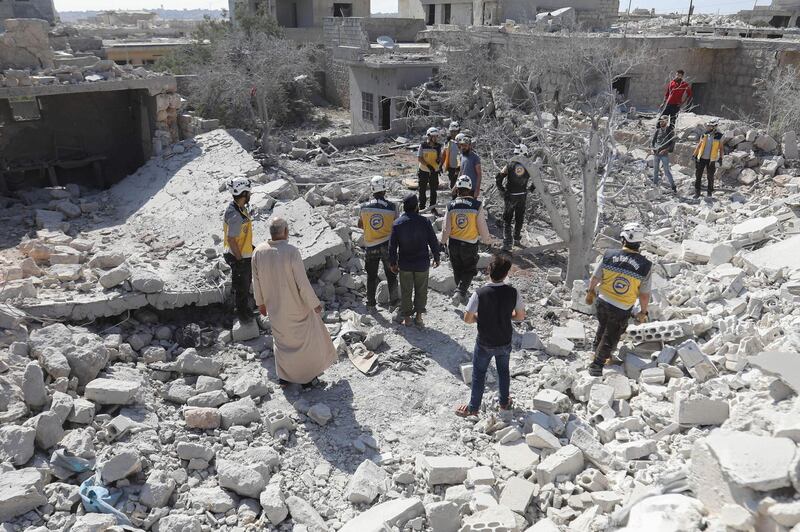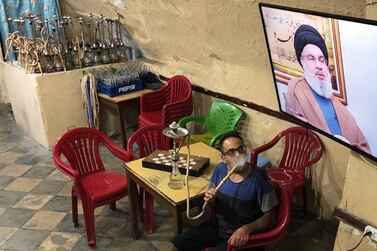Syrian rescuers and activists say 11 civilians, including two families of four, have been killed in government and Russian airstrikes inside Syria’s last rebel stronghold.
First responders known as White Helmets said airstrikes in Kfarya village Saturday killed a mother, her baby and another man, leaving 11 injured, including one of their volunteers.
The rescuers and the Syrian Observatory for Human Rights, an opposition war monitor, said other airstrikes in the town of Khan Sheikhoun hit a farm, killing two families – four children and four parents. The Observatory said Russian aircraft were suspected of launching the strike.
Moscow is backing the Syrian government in a stalled offensive against the northwestern Syria rebel enclave, now in its 11th week.
Russia said it foiled an attack on its coastal military base Friday.
The strikes come as two months of intensive aerial bombardment by Syrian government forces and their Russian allies, coupled with a fierce ground assault, that has killed hundreds of people and caused massive displacement in rebel-controlled Idlib province, little to no gain has been achieved for President Bashar Assad.
Despite the heavy bombardment, Assad’s troops have been unable to make any significant advances against Al Qaida-linked militants and other hardline groups who dominate Idlib province, the last significant area held by opposition forces. Militant attacks have killed an average of more than a dozen soldiers and allied militiamen a day in recent weeks.
The struggling campaign underscores the limits of Syria’s and Russia’s airpower and inability to achieve a definitive victory in the country’s long-running civil war, now in its eighth year.
With crucial military assistance from Russia and Iran, Syrian troops have in the past few years recovered most other opposition-held parts of the country with crushing offensives and long-running sieges. In each of those places, rebels either surrendered or were forcibly exiled to Idlib, where they are now cornered with nowhere left to go. Bitter and desperate, they can only fight to the end. Abu Mohammed Al Jolani, the leader of the main Al Qaida-linked group in the region, has called on every able person to “perform his religious duty” and join the fight.
Sam Heller, a Syria expert with the International Crisis Group who closely follows the situation in the province, said, “Idlib’s armed opposition may not be able to win an open battle for the northwest, but they can make a Syrian military victory terribly costly, maybe intolerably so.”
Crucially, Iran-backed fighters, including members of Lebanon’s Hezbollah group whose participation has been key in previous battles, have not joined the fight for Idlib, deeming the region a low priority, unlike more strategic areas bordering Iraq and Lebanon. Even Russia hasn’t thrown all its weight into the fray and has continued to talk to Turkey about ways to reinstate a once brokered and now broken ceasefire.
Rather than a full-blown offensive to recover the province, which is packed with 3 million people, Assad’s government has, for now, restricted its assault to the edges of the region with the aim of reopening key highways crossing through rebel-held areas. But even that has proved futile as the rebels fight back aggressively.
According to the Syrian Observatory for Human Rights, an opposition war monitor, 2,443 people have been killed since April 30. They include 629 civilians, among them 159 children. The dead also includes 869 pro-government fighters and troops as well as 945 insurgents, according to the Observatory.







